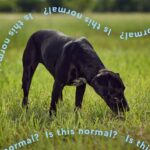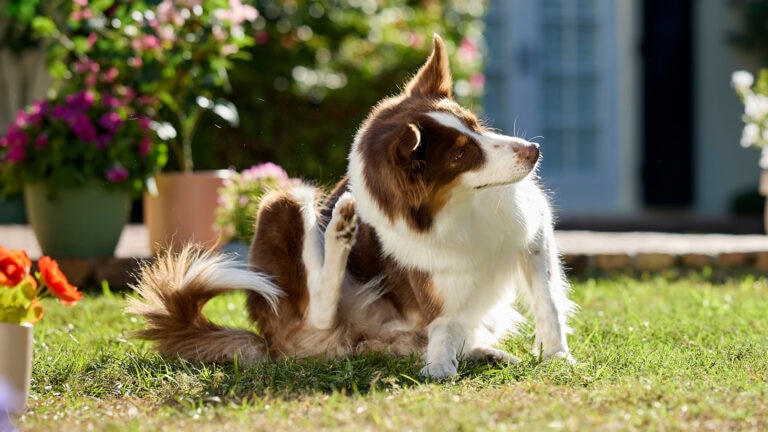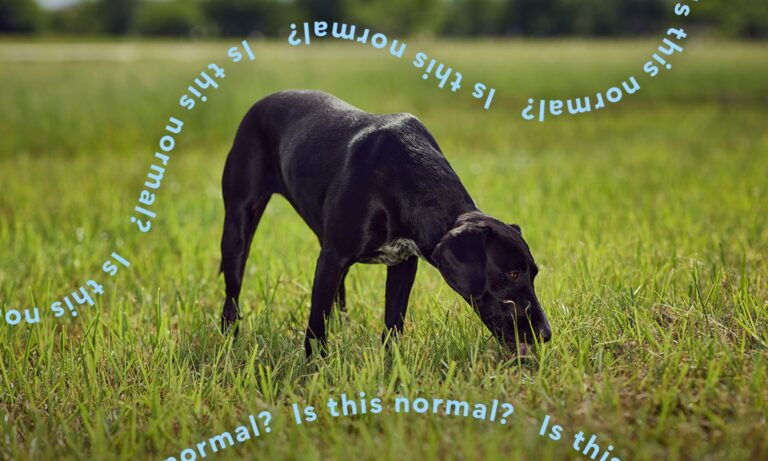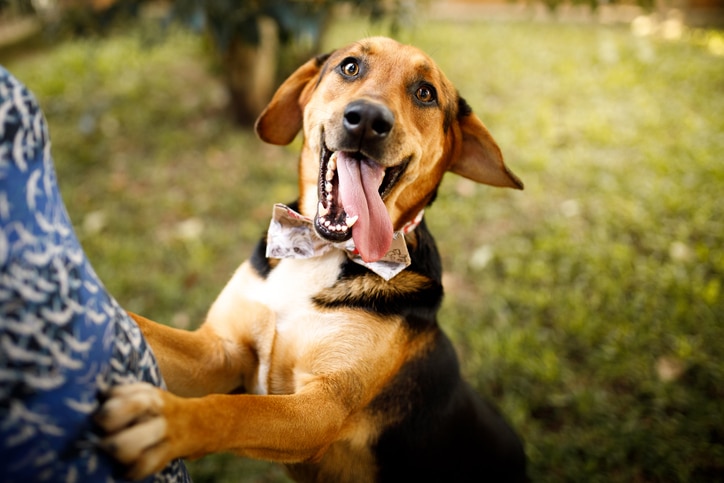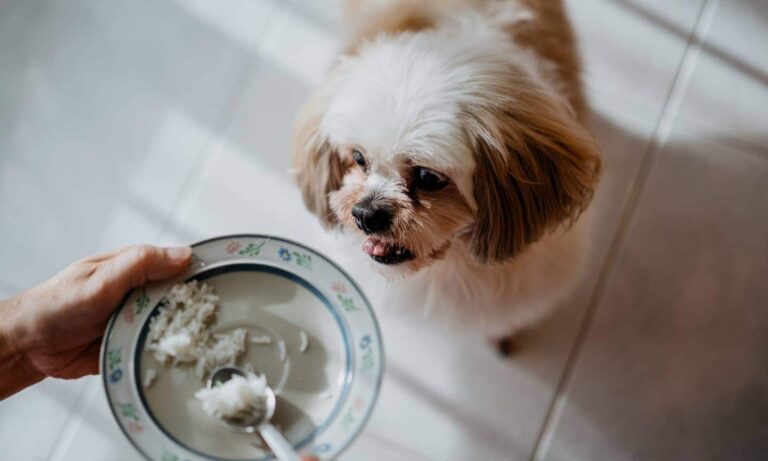Swollen Lymph Nodes in Dogs: Causes, Treatment and More
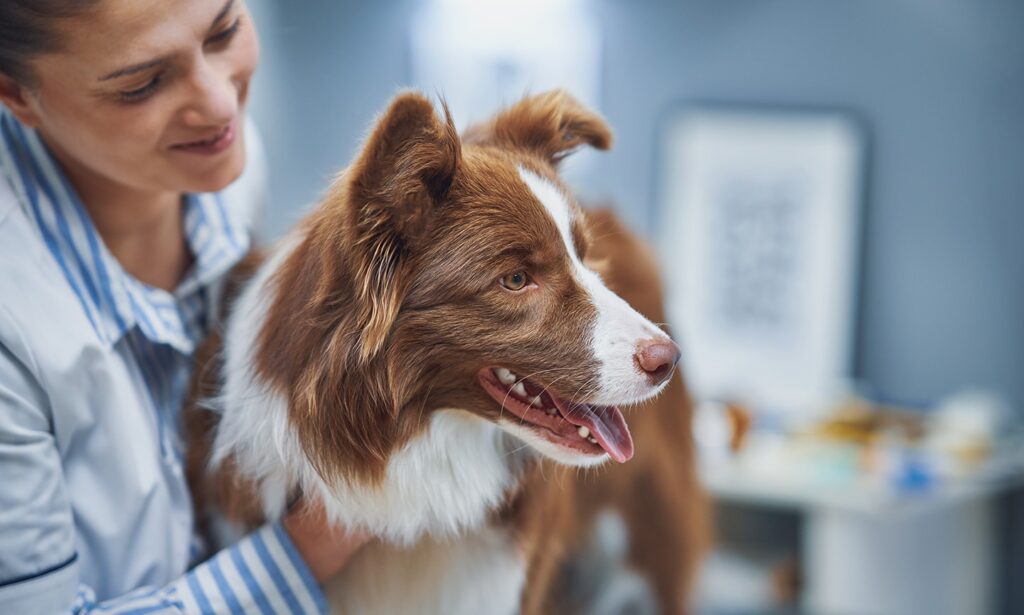
Photo by macniak/iStock/Getty Images Plus via Getty Images
As you’re petting your canine companion to give them some extra love after a long day at work, you feel what seems to be a lump near their neck. You go over the area again. Is it a cyst? A tumor? Their salivary glands? If the enlarged lump feels firm and warm, it’s likely to be swollen lymph nodes.
More than anything, we want our four-legged friends to live a long, healthy, happy life. Symptoms like swollen lymph nodes in dogs can undoubtedly be concerning, as they may indicate a benign condition at best or a serious disease at worst.
We spoke with veterinarians to learn more about dog lymph nodes, from where they’re located and what they look like, to the possible causes for why they can become swollen and the most common treatments.
Where Are Dog Lymph Nodes?
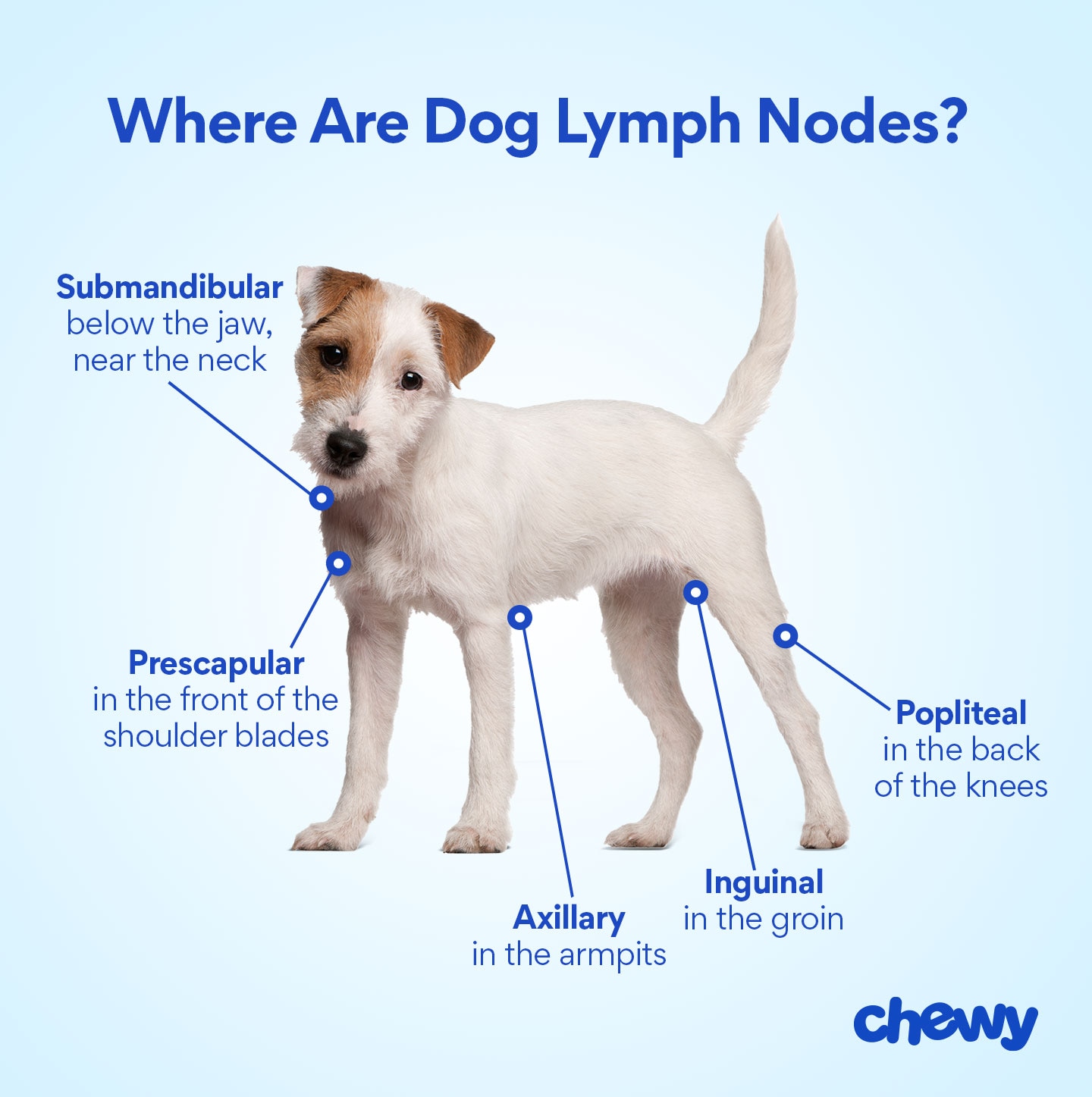
Chewy Studios
Dogs have more than 50 lymph nodes, with each serving as an immune system filter, explains Dr. Bethany Hsia, DVM and co-founder of animal end-of-life care network CodaPet, in Clovis, California.
“Their purpose is to help remove harmful substances, such as bacteria and viruses, from the body’s fluids,” she adds.
There are five different kinds of dog lymph nodes located throughout parts of the body, including:
- Axillary lymph nodes: in the armpits
- Inguinal lymph nodes: in the groin
- Popliteal lymph nodes: in the back of the knees
- Prescapular lymph nodes: in the front of the shoulder blades
- Submandibular lymph nodes: below the jaw, near the neck
Like in humans, a dog’s lymph nodes serve as a vital defense against infections, bacteria and diseases, making them incredibly important components of your dog’s lymphatic system and overall health.
What Do Swollen Lymph Nodes in Dogs Look Like?
In their normal state, lymph nodes can be hard to detect, as they’re naturally small—ranging from the size of a bean or grape, depending on your pooch’s size.
When they become swollen, lymph nodes may appear as small masses under the skin, usually accompanied by redness, warmth and pain, Dr. Hsia says. The size of the swollen nodes, she adds, can also vary, depending on the underlying cause. The inflammation and enlargement of the lymph nodes may be referred to as lymphadenopathy or lymphadenomegaly, respectively.
What Causes Swollen Lymph Nodes in Dogs?
Various factors can cause lymph node enlargement, Dr. Hsia says, ranging from minor to serious. Possible causes of swollen lymph nodes in dogs include:
- Allergies: If your dog has skin allergies or food allergies, allergic reactions can lead to swollen lymph nodes. The allergic response causes the lymph nodes to become inflamed and enlarged, Dr. Hsia says.
- Infections: The term “lymphadenitis” refers to a specific type of lymphadenopathy where inflammation of the lymph nodes is due to infection. Viral infections, bacterial infections and fungal infections are all common causes of swollen lymph nodes as the body tries to fight off the infection, Dr. Hsia says. When an infection occurs in the nearby tissues or organs, lymphocytes (white blood cells) can become activated and migrate to the lymph nodes. This leads to an increase in the number and size of lymphocytes within the nodes, causing them to swell. This is a normal part of the immune response. The most common infections that cause swollen lymph nodes in pets include abscesses, cellulitis and pneumonia.
- Parasites: Your dog’s lymph nodes can become swollen when fighting off an infestation from parasites such as fleas, ticks and heartworms.
- Cancer: Swollen lymph nodes can also be a symptom of cancer in pets, particularly lymphoma, which affects the immune system and can cause swollen lymph nodes, fatigue, loss of appetite, weight loss and may involve the bone marrow, Dr. Hsia says. Lymphoma is a relatively common cancer in pets, particularly senior cats and dogs. It accounts for roughly 5 to 7 percent of all cancers diagnosed in dogs and cats, Dr. Hsia notes.
Are Certain Breeds More Prone to Developing Swollen Lymph Nodes?
All dogs can potentially develop swollen lymph nodes, Dr. Hsia says, but certain breeds and age groups may be more prone to developing them due to genetic predispositions or increased exposure to environmental factors. These groups can include:
- Toy and terrier breeds: due to their smaller size and susceptibility to respiratory infections and dental disease
- Senior dogs: due to their weakened immune systems and increased susceptibility to health issues
What To Do if Your Dog Has Swollen Lymph Nodes
If you notice that your dog has enlarged lymph nodes, consult a vet for a proper diagnosis and treatment.
Because there can be several potential underlying conditions, your vet will perform a physical examination, take a complete medical history and may conduct diagnostic tests.
In some cases, swollen lymph nodes may resolve on their own without treatment. However, taking a wait-and-see approach can be risky, as the swelling may persist or worsen in some cases.
“It’s essential to monitor your dog’s condition and seek veterinary attention if you notice any changes in their behavior, appetite or physical condition, as delaying treatment can lead to complications or worsening of the condition, which may have negative consequences for your dog’s health,” Dr. Hsia says.
How Vets Diagnose the Cause of Swollen Lymph Nodes
The potential causes of swollen lymph nodes can range in severity, which is why it’s always a good idea to schedule an appointment with your vet as soon as possible.
Your vet can help find out why your dog’s lymph nodes are swollen by doing the following:
- Physical examination: With a physical exam, your vet will palpate and evaluate the size and location of the swollen lymph nodes.
- Fine needle aspiration (FNA): Your vet may use a small needle to withdraw cells from the swollen lymph node for examination under a microscope.
- Biopsy: “In some cases, a biopsy might be performed to get a more detailed analysis of the lymph node tissue,” says Dr. Nicole Savageau, DVM, a veterinarian with The Vets in Miami, Florida.
- Blood tests: Blood work can help determine your dog’s overall health and might indicate abnormalities associated with lymphoma.
Your vet may also conduct a urinalysis or imaging studies (e.g., X-rays, CT scans, ultrasounds), Dr. Hsia adds.
Dog Swollen Lymph Nodes Treatment
Treatment for swollen lymph nodes depends on the underlying cause, Dr. Savageau says.
- Infection: Treating the infection with antibiotics or anti-inflammatory medication can reduce the swelling.
- Allergies: If your dog’s lymph nodes are swollen due to allergies, your vet may recommend treatment in the form of identifying and avoiding allergens, medications, topical treatments, special diets, environmental management, etc.
- Parasites: Treatment may involve topical treatments, preventatives, ear drops, deworming or antifungal medications, depending on the parasite.
- Lymphoma: If cancerous cells are detected and lymphoma is diagnosed, treatment will be based on the type and stage of lymphoma, which may include chemotherapy, radiation therapy (Read more about lymphoma in dogs.)
In some cases, swollen lymph nodes may need to be drained or surgically removed, Dr. Hsia adds.
Dog Swollen Lymph Nodes Home Remedies
No matter whether you’re trying to make your canine companion comfortable until their vet visit or during their treatment, Dr. Savageau says the following home remedies and comfort measures may help:
- Apply a warm compress: Dampening a cloth in warm water and applying it to the swollen area can provide some comfort.
- Ensure your dog gets rest: Keep your dog comfortable and help them get plenty of rest so that their body can fight off infections.
- Maintain hydration and nutrition: Make sure your dog has access to clean water and to easily digestible, nutritious food.
- Avoid irritants: Keep your pet away from potential irritants, such as smoke or strong odors.
Recommended Products
Swollen lymph nodes can come about for a variety of reasons, such as allergies, infection, parasites or cancer. If you notice that your dog has swollen lymph nodes, talk with your vet promptly to get the most accurate diagnosis and appropriate treatment options for your dog’s specific situation. Don’t have a vet yet? Here’s how to find one.



